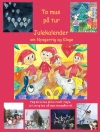In ‘Floor Games; a companion volume to ‘Little Wars, ” H. G. Wells masterfully extends his exploration of imaginative play as a vital aspect of childhood and creativity. This seminal work, set against the backdrop of early 20th century recreational culture, is presented in a conversational, yet didactic style, blending vivid illustrations with insightful commentary on game design and strategy. Wells presents a series of innovative floor games that encourage unfettered imagination, reflecting the literary context of his time, where industrialization began to reshape leisure activities and childhood experiences. The text serves not only as a guide for practical games but also as a philosophical reflection on play as a cornerstone of human development. H. G. Wells, an influential thinker in literature and science fiction, brought his background in sociology and history into his writings. His personal experiences of engaging in imaginative play as a child, combined with his keen observation of societal trends, propelled him to write this book. Wells sought to elevate play as an essential educational tool, emphasizing its role in fostering creativity and cooperation among children. ‘Floor Games’ is highly recommended for readers interested in the interplay between play, education, and creativity. This work invites modern readers to reconsider the importance of imaginative play in childhood and serves as an insightful resource for parents, educators, and game designers who aspire to cultivate a rich, imaginative landscape for the youth.
About the author
Herbert George Wells, famously known as H. G. Wells, was an illustrious English writer born on September 21, 1866, in Bromley, Kent, England. Wells was a prolific writer, a visionary of his time, whose scope of work traversed various genres. He is most renowned for his contributions to the science fiction genre with seminal works such as ‘The Time Machine’ (1895), ‘The Island of Doctor Moreau’ (1896), ‘The War of the Worlds’ (1898), and ‘The Invisible Man’ (1897). Wells’s literary style often combined an accessible narrative with thoughtful commentary on society, technology, and the future, earning him the moniker ‘The Father of Science Fiction.’ Beyond science fiction, Wells also authored ‘Floor Games; a companion volume to ‘Little Wars” (1911), where he explored the imaginative use of toy soldiers to enact battles – a precursor to modern war gaming. His works were not just entertainment but also a medium to express his views on social reform and comment on contemporary moral issues. Wells’s impact on literature is substantial, his works continue to inspire adaptations and discussions on human progress, and his vivid imagination remains a touchstone for the science fiction genre. He passed away on August 13, 1946, but his legacy as an author and thinker endures in contemporary literary and cultural studies.












